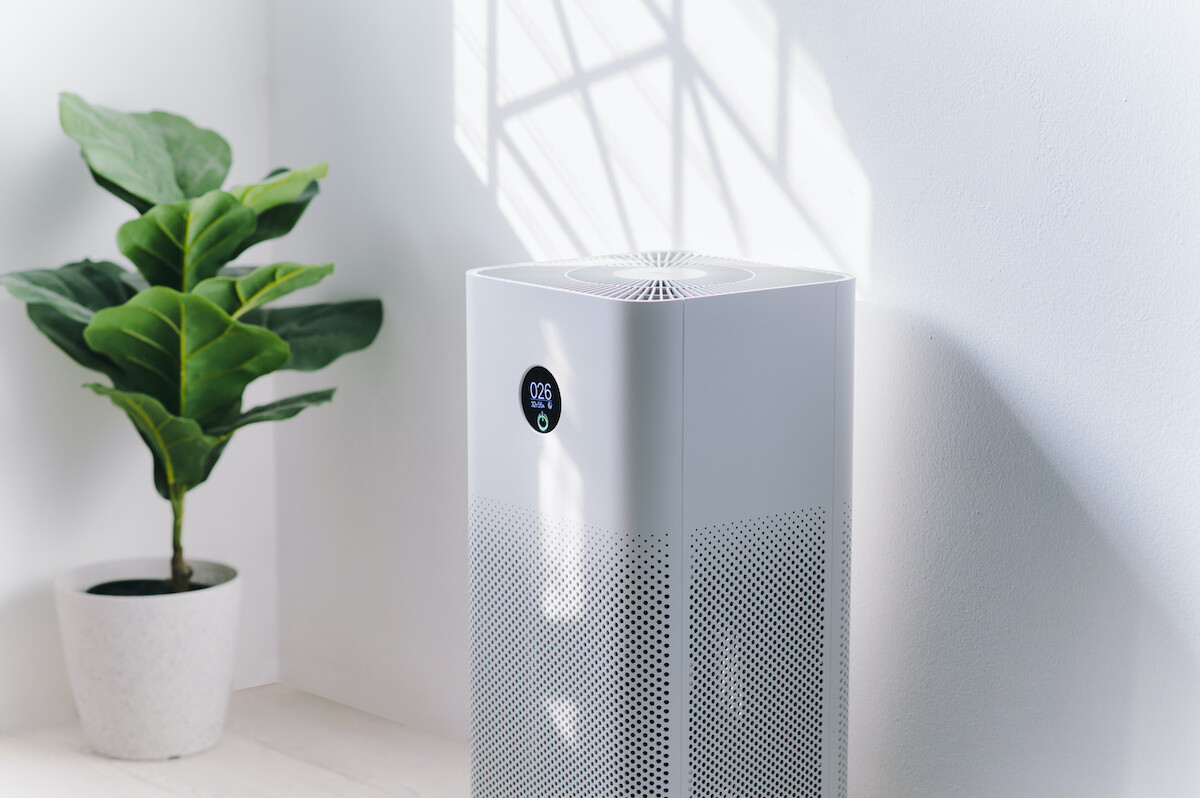
The Benefits Of Using An Air Purifier
Indoor air can be up to five times as polluted as the air outdoors (EPA). Since indoor air doesn’t usually get much circulation, many different airborne irritants, pollutants, and allergens thrive and multiply indoors.
Using an air purifier in your home can help circulate air, reduce allergens and pollutants, and refresh stale air. In turn, this can reduce the chances of health issues caused by indoor pollutants, which can trigger respiratory problems and aggravate symptoms in those with asthma. Good quality air purifiers can reduce or eliminate several different types of indoor air pollutants, helping keep us healthy!
Read on for more information about some of the benefits of using an air purifier in your home:
Relieve Asthma and Allergy Symptoms
(for People AND Pets)
Pet dander, pollen, and dust mites are three of the biggest culprits for allergies, both seasonally and year round. Our furry friends mean the world to us, but their hair can cause itchy eyes, runny noses, and scratchy throats for anyone who is allergic to them. Pollen drops seasonally and is light enough to be carried on the breeze. Often, pollen can stick to your clothes and then be introduced to your home! Finally, the most common of indoor allergens — dust mites. They live in your home, and thrive in humid environments with poor air flow.
You can take measures to reduce these allergens in your home, such as vacuuming and dusting. Even then, there will be ambient particles in the air of your home. This can trigger allergies in people and in pets, and can irritate symptoms of asthma in those who have it. Using an air purifier can help to reduce the levels of these different allergens (and even more) making your home’s air cleaner and easier to breathe. In fact, some HEPA filters can remove up to 99.7% of airborne particulate matter (PM).
Get a Better Night’s Sleep
Have you ever had a head-cold that made sleeping difficult? A stuffy or runny nose, watery eyes, and scratchy throat can make it hard to fall asleep. They can also make it hard to stay asleep if you’re waking in the night from your symptoms. Well, just like a cold, hay fever and seasonal allergies can cause symptoms that make a good night’s sleep feel impossible. Unlike a cold though, allergies can last for weeks or even months depending on your climate. Allergies can even be triggered by bacteria, fungi, and dust mites, meaning that you don’t get a break when the pollen season ends!
A good air purifier will help reduce the amount of irritants and allergens in your home’s air. In turn, you and your family get a better night of sleep, and can breathe easier during the day.
Neutralize Unpleasant Odors
Volatile organic compounds (or VOCs for short) are commonly found in aerosolized sprays, air fresheners, and paint. As these chemicals break down, they create a very recognizable odor. Have you ever stepped into a room that was painted several days before and still been able to smell the paint? That’s because of VOCs! Aside from their strong and unpleasant smells, the gases given off from VOCs can cause nausea, lightheadedness, and breathlessness.
Luckily, air purifiers can help with that too. HEPA filters and filters with activated carbon are both very effective at trapping gases as well as particulates. That doesn’t just mean for VOCs, either. Any unpleasant or stale smell around the house, such as smoke or musty odors, can be reduced with a quality air purifier.
Even More Ways to Improve Indoor Air Quality
On top of using an air purifier, there are other steps you can take to improve the air quality in your home. Regular cleaning, proper circulation, and even growing indoor plants are a few. Follow these steps below and improve your indoor air quality even further:
- Vacuum, sweep, and/or mop at least once a week. This will prevent a buildup of allergens from being trapped in the carpet, rugs, or on the floor.
- Grow some indoor plants. Plants can act as natural air filters, and they add color and vibrance to a room! If you have pets, make sure that you choose plants that are non toxic to them. Check out the ASPCA’s list of toxic and non-toxic plants for ideas on what you can safely grow at home.
- If you live in a humid climate, invest in a dehumidifier to prevent mold and mildew. You can also do this by opening windows for fresh air whenever possible (provided the weather outside isn’t also humid!)
If you’re looking for an air purification system for your home, Texas Ace is here to help! We’re the go-to HVAC team for the Dallas/Fort Worth area — give us a call anytime at 817-240-6701 or contact us online and we’ll help you find the right solution for you.
